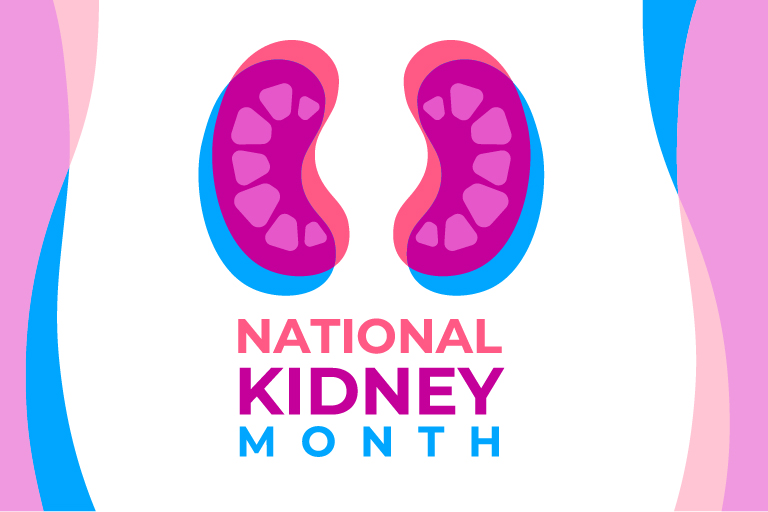
Things to consider for better kidney health
You need your kidneys for a healthy life. But many adults don’t give their kidneys the attention they need, and when these organs aren’t at their best, your health can suffer.
Over 20 million American adults suffer from kidney and renal problems, according to the Centers for Disease Control and Prevention. And most of these adults are over the age of 70.
With numbers like these, it’s important to know what your kidneys do for you and how to care for them.
What your kidneys do
Your kidneys have a big workload. Each day they process an average of 200 quarts of blood and filter out about two quarts of waste and excess water. Other jobs your kidneys tackle:
• Regulating water retention
• Balancing minerals, such as sodium and potassium
• Producing enzymes that manage blood pressure
• Releasing a hormone essential for producing red blood cells
As you can see, kidneys have quite a lot to do. Let’s look at problems that could prevent them from working at their best.
Possible challenges
There are many potential problems that your kidneys could face. One of the most familiar to men and women are kidney stones.
These are typically not life-threatening, but they are extremely painful and can lead to infections. Kidney stones are the result of an imbalance of salts and minerals, water and other substances in the body.
Treatment usually involves pain medications and heavy fluid intake. Extreme cases may call for surgery. You can help prevent kidney stones by drinking plenty of water and maintaining a balanced, low-salt diet that is high in fruits and vegetables and low in animal protein.
Consider talking to a physician or dietitian about forming a diet plan that’s best for you.
There is also a more subtle problem that can lead to bigger issues, including kidney failure. This is called chronic kidney disease, and it can slowly damage the filtering units of your kidneys if not addressed.
Chronic kidney disease carries few or no symptoms in the early stages, but the National Institutes of Health lists diabetes, high blood pressure, cardiovascular disease and family history as major risk factors.
Possible causes include immune system problems, such as lupus and hepatitis, urinary tract infections, congenital issues and medication complications. If you have any of these risk factors, you should focus on early detection and prevention.
Acute renal failure is a worst-case scenario. It is a sudden loss of kidney function and can occur from lack of blood flow to the kidneys, medication reactions, infections and physical injury.
Symptoms include problems urinating, swelling of legs and feet, nausea and lower back pain, and should be treated as an emergency.
What you can do
You can help prevent kidney problems by reducing sodium and saturated fats in your diet.
Eat more berries, nuts, avacados and fish.
Eat less processed meats and packaged or frozen foods high in sodium (more than 300 mg per serving).
Watch your sugar intake, especially if you enjoy sodas or sweet tea. And drink plenty of water! Aging can reduce your sense of thirst as well as your ability to conserve water.
If you have diabetes or high blood pressure, you may have a greater risk of kidney complications. Try to manage these conditions through exercise, healthy diet, physician’s advice and proper use of prescribed medications.
Paying attention to current health conditions and monitoring your blood pressure can prevent a domino effect of other medical problems.
Since not all kidney problems offer the convenience of early symptoms, it’s vital to get screened. Your primary care provider can run blood and urine tests to see the condition of your kidneys and how well they are working.
Early detection and treatment can keep possible kidney problems from impacting your health.
Your kidneys work hard for your health and well-being. Let's remember to treat them well for this month and beyond

